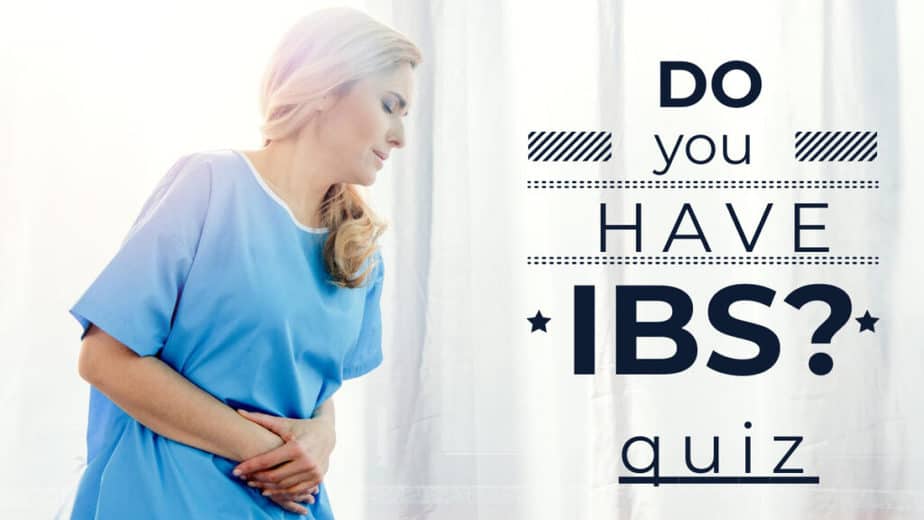Today on ‘things you may not have known until now’ – rice and IBS have a pretty complicated relationship!
In most cases, rice won’t be a trigger for IBS. In fact, it can often be good for IBS! In some cases, rice can be known to make IBS worse.
We are here to give you some of the answers to the questions that you may be wondering about eating rice when you have IBS.
Rice and Triggering IBS
Technically rice does not trigger IBS. It is actually known as a low FODMAP food.
Rice is mostly made up of carbohydrates – that’s around 87% of what rice is made out of! Most of the calories in rice comes from starch which is the main kind of carbohydrate in rice.
In addition to this, rice contains a lot of soluble fibers which are generally good for your IBS.
It’s free of gluten too, which means that it’s a good choice for people with Celiac disease and those that struggle with gluten sensitivity.
Rice is usually well tolerated if you have IBS. With that being said, if you are currently dealing with a flare of IBS-C (constipation predominant IBS), then white rice can sometimes make it worse.
But what is white rice? It’s basically a kind of refined brown rice and it’s the type of rice that people use most often. The bran and the germ is taken off the rice and that’s how you get white rice.
We’re also going to talk about the pros and cons of brown rice and white rice, and how it applies to IBS.
Even if you have IBS related constipation, you can still enjoy white rice. There’s nothing wrong with it in moderation!
We’re going to tell you more about the benefits of brown rice, and you’re going to learn more about the science.
Whole grains are usually better for your health than refined grains like white rice are, after all. This isn’t always the case though!
Can You Relieve IBS Symptoms by Eating Rice?
As we have already briefly covered, rice in itself isn’t technically something that commonly triggers IBS.
With that in mind though, is it possible to actually improve your IBS by eating rice? The short answer is yes! You can get some fantastic benefits for your IBS by eating rice.
This can depend on a couple of things though.
For instance, what kind of rice are you eating? How often are you eating it and when, and how are you cooking it? Finally, what is your type of IBS – do you mainly get diarrhea, constipation or both?
Rice is known as a low FODMAP food, and these kinds of foods tend to be recommended for IBS sufferers.
It will get to the bowels and it then encourages good bacteria to grow in your bowels and this can help with having good, regular bowel movements.
The insoluble food is quite handy too with helping you to minimize many side effects of IBS and regulating your bowel movements.
There are many other benefits of eating rice too, including:
It Can Protect You From Hypertension
This food does not contain a lot of sodium. High amounts of sodium in the diet can contribute to increased blood pressure. If you eat a diet that is low in sodium then you are far less likely to develop hypertension.
If you have hypertension at the moment then it’s a good idea to ensure that you are eating a diet that is low in sodium – rice can be a great choice for this.
It Can Protect You From Cancer
Want to reduce your risk of getting certain kinds of cancer such as colon cancer? It’s definitely a good idea to make sure that you are eating plenty of brown rice.
This kind of rice has insoluble fiber, which is important as it gives your gut motility and it helps to balance the good bacteria inside of the colon.
Not only that, but rice also contains a bunch of other great things like vitamin C, vitamin A, phenolic and flavonoid compounds. These are antioxidants that are pretty important for getting free radicals out of the body.
Improved Immunity And Metabolism
Rice contains a number of minerals and vitamins that are great for your immune system and metabolism. This includes niacin, calcium, vitamin D, thiamine, fiber, iron and riboflavin.
Should I Eat Brown or White Rice for IBS?
For those with IBS, rice can be a safe and soothing option, but it’s essential to consider the type and preparation.
Brown Rice and IBS
If you want to reap the health benefits for your IBS, it’s certainly worthwhile to eat brown rice. This is the type of rice that is most recommended because it generally contains additional nutrients and fibers over white rice.
Being a whole grain, brown rice retains its bran and germ, making it rich in fiber. However, for some IBS sufferers, especially those with IBS-D (diarrhea-predominant), too much fiber can exacerbate symptoms. Start with small portions and see how your body reacts.
Brown rice tends to contain around the same amount of calories as white rice, though sometimes there are a few more calories involved. The rice also has additional fiber and protein and this is good for dealing with the bad gut bacteria.
Since brown rice contains a lot of fiber, there’s a good chance that it can help improve your bowel habits, which may reduce your other IBS symptoms like pain, cramps or bloating.
You can get a number of additional benefits from eating brown rice, such as improved satiety after eating it (making you feel full longer), more controlled blood sugar levels and reduced cholesterol.
Many doctors surmise that irregular bowel habits – bothersome constipation and diarrhea – can often be the result of not eating enough fiber. Because of this, doctors will usually ask that a patient makes an effort to get more fiber into their diet.
You can find lots of great soluble fiber in brown rice for instance, and in other kinds of foods such as berries, barley, oats, legumes and dried beans.
If you eat foods high in fiber then you may be less likely to experience frequent diarrhea because it provides bulk to the stool.
You do need to be careful though. A sudden increase in the amount of fiber in your diet can lead to gas and bloating. It’s better to slowly increase the amount of fiber in your diet, with a goal of 25-30 grams of fiber a day.
Read more about Fiber and IBS.
White Rice and IBS
White rice is known as a refined carbohydrate. This means that some of the fiber content of the original grain of rice is stripped away. This does mean that it’s not as powerful for reducing your IBS symptoms, constipation in particular.
White rice is refined grain has its bran and germ removed, reducing its fiber content. It can be a safer option for those with IBS-D. However, ensure you’re getting fiber from other sources in your diet.
White rice is also often enriched with B vitamins, folic acid and iron because of the lack of nutrients.
In reality, white and brown rice can both be pretty good for IBS though you may have slightly more benefits from consuming brown rice.
If you do have IBS and you usually eat white though, it’s definitely worthwhile to try some brown rice to reap the benefits.
How Should I Eat Rice for IBS?
Okay, so how do you eat it? Start off by introducing rice to your diet in small quantities. You can increase the amount as time goes on.
For rice preparation, regardless of the type, ensure rice is thoroughly washed and cooked well. Soaking brown rice for a few hours before cooking can make it easier to digest.
Pair rice with lean proteins and non-triggering vegetables to create a balanced meal that’s gentle on the gut.
When you are eating brown rice, you should ensure that you are drinking more water too. Make sure that you minimize any condiments and spices to reduce the risk of IBS.
If you have constipation, then brown rice would usually be the preferred option due to its higher fiber content.
You can generally choose based on how your body responds if you have IBS mainly characterized by diarrhea.
Of course, every IBS sufferer is different so you should look at what works for you. If something isn’t working then change it or omit it. You will then find a diet that works well for you.
For more articles on IBS and certain foods, check out these articles:


